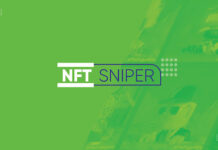[ad_1]
Bitfinex-incubated DeversiFi claims its re-released decentralized exchange (DEX) is receiving interest from institutions, thanks to a privacy layer that can protect their trading strategies from rivals.
A DeversiFi spokesperson told CoinDesk that the firm had already had a “significant pipeline of funds” interested in integrating with the exchange following the implementation of its new software implementation, DeversiFi 2.0, which went live on Wednesday.
Although they wouldn’t divulge particular details, the spokesperson said: “We have interest from 70 funds and large traders and have 18 funds ready to trade on DeversiFi 2.0 at or around launch.”
The smallest of these funds had around $1 million in assets under management (AUM), while some of the bigger clients had AUMs “well into the tens of millions.”
A spokesperson said some institutional clients saw DeversiFI 2.0 “as a key bridge to crossing from the centralized to the decentralized trading space.”
With a team based in London, DeversiFi started out as Ethfinex, an exchange incubated by Bitfinex back in 2017. It spun out and rebranded in August 2019. It is non-custodial, allowing users to maintain control of their funds.
The 2.0 implementation is designed to provide users with scalability and privacy. Using the zk-STARKs privacy layer, it allows anyone to trade anonymously and also increases trade settlement capacity by up to 9,000 transactions per second.
DeversiFI says one of the main issues traders have with conventional DEXs is most are completely public. Third parties can watch others trade from their computers. That’s a conundrum for professional traders who worry such openness endangers their proprietary trading strategies, as they can be copied or undercut by rivals.
Although it describes itself as a DEX, one crucial difference with DeversiFi is that trades are executed off-chain, so that third-parties can’t monitor the trading behaviors of individual users. Once executed, these trades are batched together into groups and settled onchain, once every hour, so there’s “no way traders can be copied,” a spokesperson said.
Ross Middleton, DeversiFi’s CFO, said DeversiFi 2.0 gave users the usability and convenience of a centralized exchange – speed, liquidity, and low fees – while removing risks, including account freezes, trade rollbacks, and hacks.
‘We see DeversiFi as being the first sufficiently fast and scalable non-custodial alternative to centralized exchanges,” said Lev Livnev, a formal verification researcher at DappHub and a partner at Symbolic Capital Partners, which is set to begin using DeversiFi 2.0
“Knowing that the matching engine can execute a large number of trades, even in peak times, is crucial for professional traders, which will allow DeversiFi to build deep liquidity and serve as a real alternative to the larger exchanges,” he added.
Disclosure
The leader in blockchain news, CoinDesk is a media outlet that strives for the highest journalistic standards and abides by a strict set of editorial policies. CoinDesk is an independent operating subsidiary of Digital Currency Group, which invests in cryptocurrencies and blockchain startups.
[ad_2]










